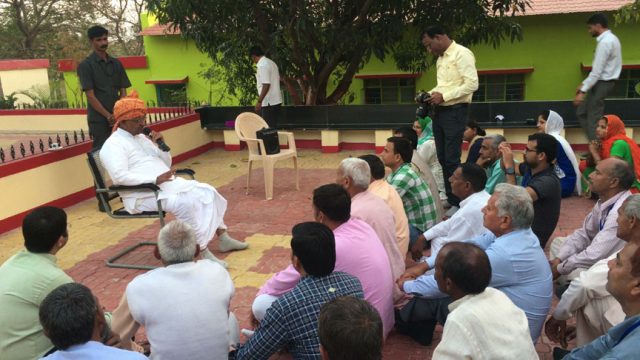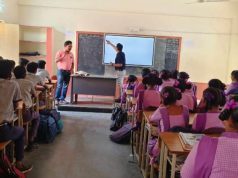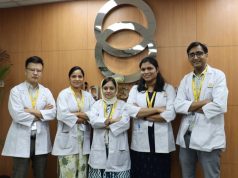Revamping Rural Areas With The Help of Technology
Although rural India faces a plethora of challenges, right from the regulation of electricity and water supply to farming and transportation of the produce to the markets to bringing in a reform through education and development, technology coupled with a vision can bring in a sea change to the rural landscape of the country.
Two IT professionals, transformed the lives of thousands in rural India, after developing an app called ‘SmartGaon’, which not only connects an entire village population internally and with the developed world, but also serves as a knowledge and information centre, a market place, a helpline and a holistic development tool.
Yogesh Sahu & Rajnish Bajpai, together envisaged a different rural India, knowing that Mobile Technology & IoT (Internet of Things) are the future of growth and development.
Taudhakpur (Mirzapur Urf Taudhakpur), is a remote village with limited amenities in Raebareli, Uttar Pradesh. The village has built 242 toilets, has CCTV cameras at various junctions, setting up Public Address Systems, Dustbins and Street lights Apart from basic facilities and infrastructure the villagers have been able to set up Adarsh Primary Schools, conduct regular health checkup events in Primary School for students and Community health centres. It has a Wifi Zone in addition to 18-20 hours power supply.
Community leaders of Tikli Village, Gurugram made a five- day tour to Ralegan Siddhi and Hivare Bazar, Maharashtra, to learn how to convert Tikli, a village in Gurgaon modelled on Sansad Adarsh Gram Yojana. The delegation got the opportunity to learn from the social activist Anna Hazare and prepare a strategic plan.
Ralegan Siddhi is a village in Ahmadnagar district of Maharashtra. It is considered a model of environmental conservation. The village has carried out programs like tree planting, terracing to reduce soil erosion and digging canals to retain rainwater. For energy, the village uses solar power, biogas (some generated from the community toilet) and a windmill. The village’s biggest accomplishment is in its use of renewable sources for energy.
Tikli village, adopted by DLF Foundation is aiming to convert a rural hamlet to a Smart Village that has all amenities with regard to rural infrastructure, education, skill development, healthcare, water & waste management systems and sound village governance structure.
Dabur India revamped the infrastructure in three government schools in Alwar district. With the inclusion of creation of new sanitation facilities for both boys and girls, the schools were today formally handed over to the local administration after undertaking a major revamp of the school facilities.
Access to basic education is the most fundamental right of any child. But an equally important right is access to basic and hygienic sanitation facilities and a healthy learning environment. It is with the aid of technology that we can revamp the last mile and assure them basics as an equality of rights for all.
Thank you for reading the story until the very end. We appreciate the time you have given us. In addition, your thoughts and inputs will genuinely make a difference to us. Please do drop in a line and help us do better.
Regards,
The CSR Journal Team
Subscribe













